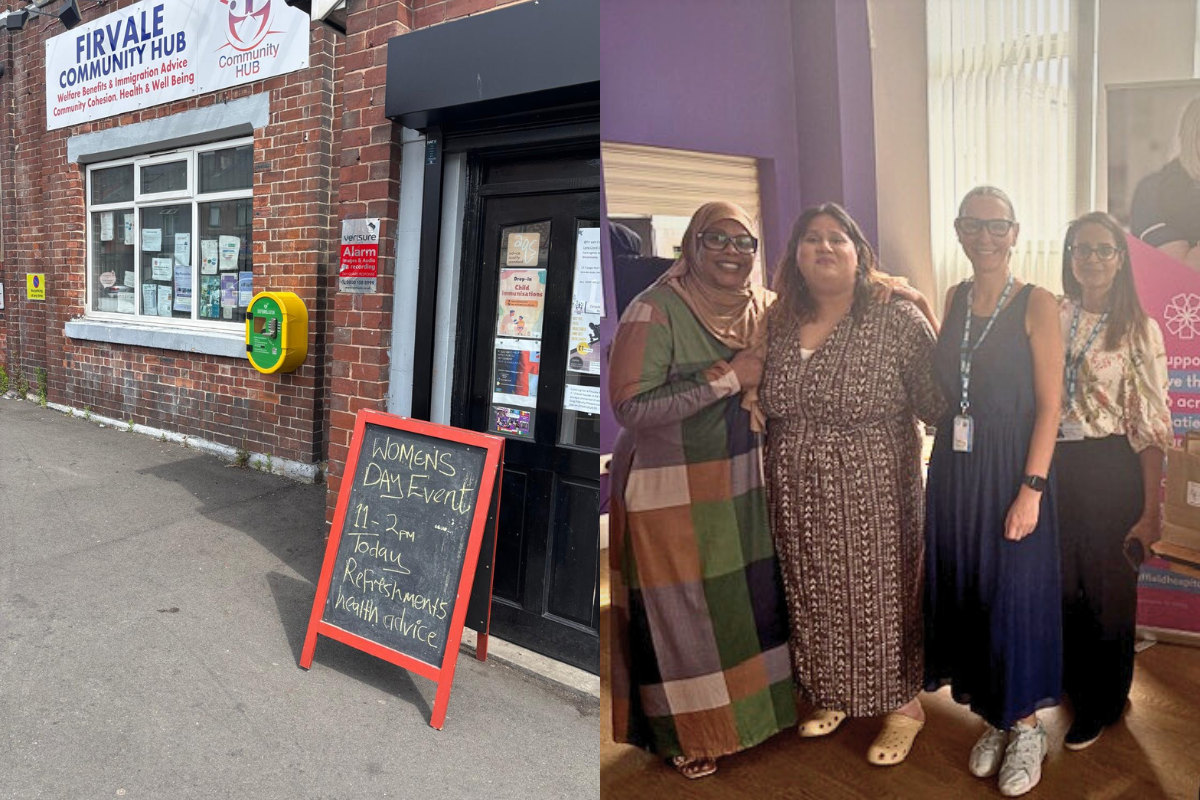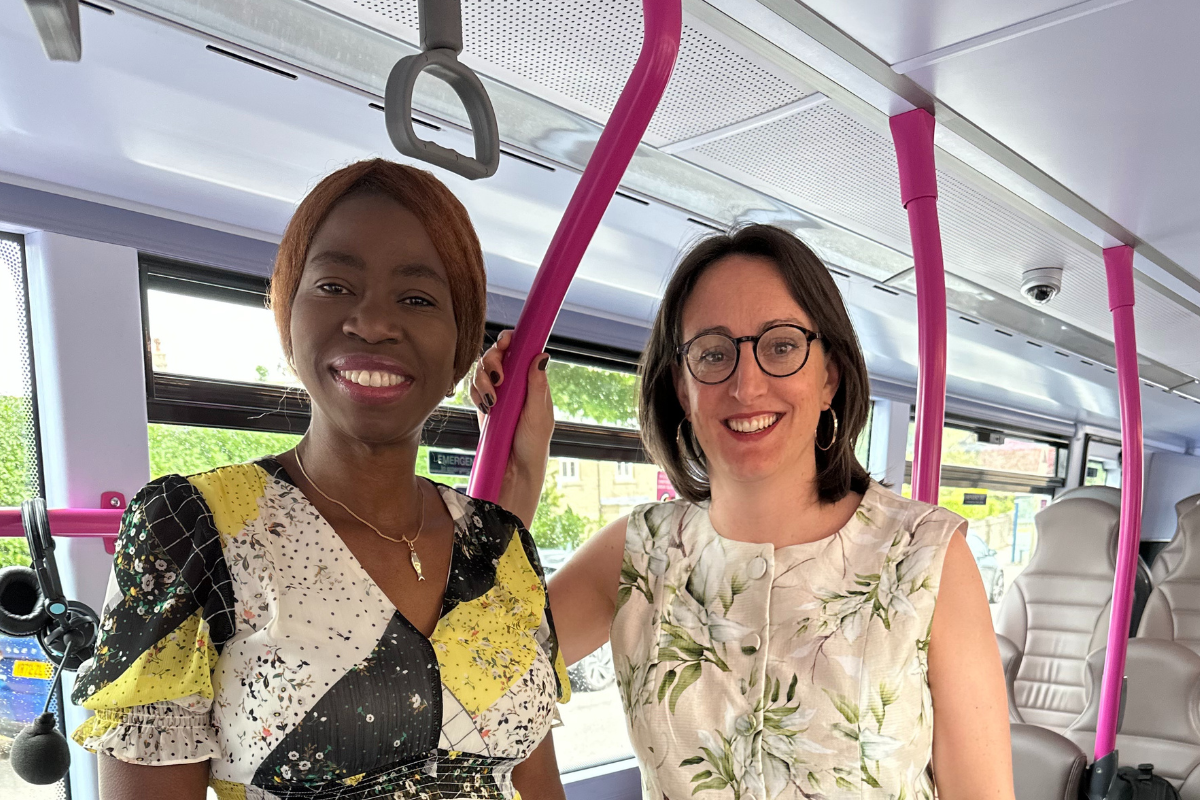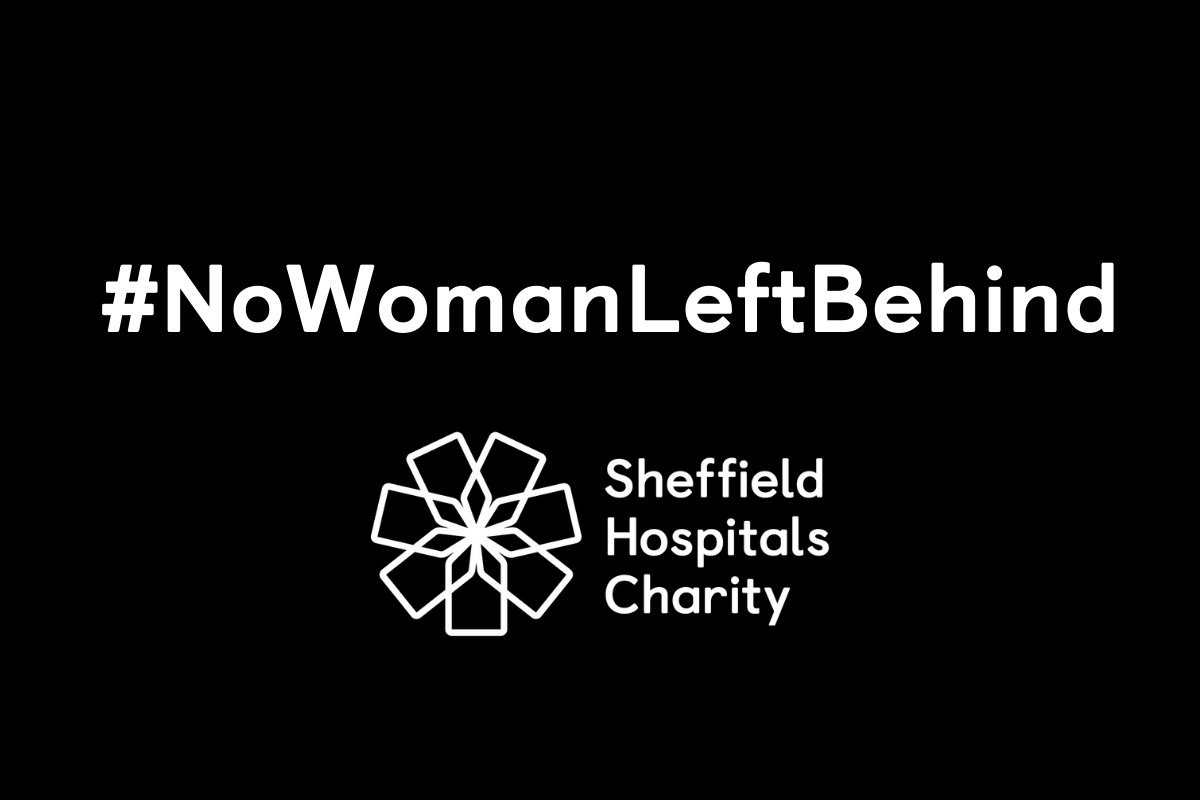We're tackling women’s health inequalities across Sheffield.
Women play a pivotal role in everyone’s health. From their own health during pregnancy, through to the care they give to others throughout their lives.
Women and girls face deep and persistent health inequalities and there’s a wealth of data which demonstrates the need for improved support for women in Sheffield.
There are social, moral, and economic reasons to invest in tackling women’s health inequalities in the city.
Watch the video below, to see why we launched our #NoWomanLeftBehind campaign.
With the support of Reverend and the Makers’ Laura McClure and players from Sheffield United Women FC alongside influential female leaders from across Sheffield, we're standing together.
Because together, we can make sure no woman is left behind.
Learn more about our focus areas:
Maternal health
Connected Beginnings: a fresh approach to maternal health
Every woman deserves a safe pregnancy and a healthy start for their baby.
But today, that isn’t always the reality.
Chances of surviving pregnancy and birth can still be shaped by your postcode or the colour of your skin.
Women living in the most deprived areas are more than twice as likely to die during pregnancy, childbirth or up-to 12months after (known as the perinatal period) as those in the least deprived.
Black women face an even starker reality. They are almost four times more likely to die during the perinatal period than white women. Asian women are twice as likely.*
These are not just statistics. They are mothers, daughters, sisters, friends.
And this is why our work matters.
We're developing work to support women through pregnancy and early parenthood, helping them prepare for birth and care for their babies with confidence. Working with Jessop Maternity Wing and across communities in Sheffield, women at risk of worse outcomes will be identified and provided with support throughout pregnancy and beyond.
When we support women early, we strengthen the foundations for a healthier childhood and a healthier life.
Early support will aim to reduce pre-term births, maternal and neonatal deaths, and the likelihood of traumatic experiences in a child’s earliest years.
The impact reaches far beyond the first days of life, too.
Children in Sheffield face higher levels of tooth decay, obesity and low vaccine uptake than the national average.** And we know that children who experience multiple adverse childhood experiences are far more likely to face serious health problems as adults — including depression, cancer and heart disease.
Our aim is simple: to close the maternal health gap that has persisted for too long.
Pregnancy offers a powerful moment to change the story.
We are working towards launching this programme in 2026.
**source Health Protection Annual Report 24-25.pdf
NHS staff affected by domestic abuse
The people who care for us may be facing abuse at home
Every day, across our hospitals and community services, NHS staff show up.
They hold frightened hands in A&E. They sit beside patients receiving life-changing news. They work night shifts, they miss birthdays, they push through feeling tired and under pressure. Because that’s what caring professionals do.
But for some of them the hardest part of their day doesn’t happen on the ward.
It happens at home.
Nationally nurses are three times more likely to experience domestic abuse than the average person in the UK.*
Let that sink in.
The very people who care for us in our most vulnerable moments may themselves be living with fear, control and violence behind closed doors.
The Trusts we support employ over 22,000 staff. More than 74% are women. They are colleagues. Friends. Mothers. Daughters. Partners. Team leaders. Newly qualified nurses. Midwives. Mental health nurses. Healthcare assistants.
They are the calm presence in a crisis. They are the ones who tell you, “You’re going to be okay.” They are the reassuring voice at the end of the phone.
And then they go home to lives that may feel anything but ok.
NHS staff are conditioned to cope. To carry on. To put others first.
If we expect our NHS staff to care for us, we must care for them too.
Domestic abuse affects wellbeing, confidence, attendance and safety. It’s not a “private issue” when it impacts someone’s ability to work and live safely.
That’s where CARE comes in. Culture, Awareness, Response, Empowerment.
CARE is a ground-breaking project driven by us, bringing together our Trusts and IDAS (a specialist domestic abuse charity in Sheffield) to build a sustainable, preventative system that supports our NHS staff experiencing domestic abuse.
This is not a one-off campaign, it’s long-term, embedded change.
CARE will:
• Create a culture of zero tolerance
• Train leaders and managers to recognise and respond to abuse
• Provide safe, confident referral pathways
• Empower staff to remain in work safely
• Embed trauma-informed, compassionate workplace practices
• Provide access to a Safe Haven Fund to support staff in crisis
CARE is our commitment to ensuring NHS staff are safe, supported and never left to cope alone.
Join us in supporting those who care for all of us.
*source Cavell nurses' trust 2016
Early cancer diagnosis
Early cancer diagnosis
Every woman affected by cancer deserves the chance of an early diagnosis.
It can save lives — and it should be within everyone’s reach.
Last year we focused on increasing cervical screening to help support earlier diagnosis of cervical cancer.
Cervical screening alone could prevent up to 75% of cervical cancer cases, but it relies on women feeling supported, informed and able to attend their appointments.
That’s why we worked with The Foundry Primary Care Network - a group of eight GP surgeries in north Sheffield. Its cervical screening rates are among the lowest in England: just 47%, compared with 69% nationally.
In June 2025 we piloted a women’s health event at Firvale Community Hub, creating a safe, trusted space for women to learn, ask questions and take action. This event was designed to help women book their cervical screening appointment on the day, knowing that they’ll see the same friendly team at their actual appointment.
We worked sensitively to overcome barriers such as generational trauma, experiences of female genital mutilation and cultural expectations. The event also provided other, practical guidance such as how to check their breasts through clothed demonstrations.
By meeting women where they were — emotionally, culturally and geographically — we helped remove some of the fear and stigma that had prevented many from attending screening.
Although a key measure of success was the number of screening appointments booked and attended, the impact was much deeper. The event opened-up conversations about women’s health that had often been closed for years. It encouraged self‑care, built trust in NHS services and helped women to feel seen, heard and supported.
We’ll be building on this work in 2026.
Women’s health event at Firvale Community Hub
The event within the Page Hall area of Sheffield aimed to reduce stigma, increase awareness, offer support and encourage women to attend cervical screening appointments.

On the Road with Naga Munchetty - Tackling Women’s Health Inequalities in Sheffield
A powerful day of action and advocacy unfolded as Naga Munchetty’s BBC Radio 5 Live show was broadcast live from the number 83 bus in Sheffield.

